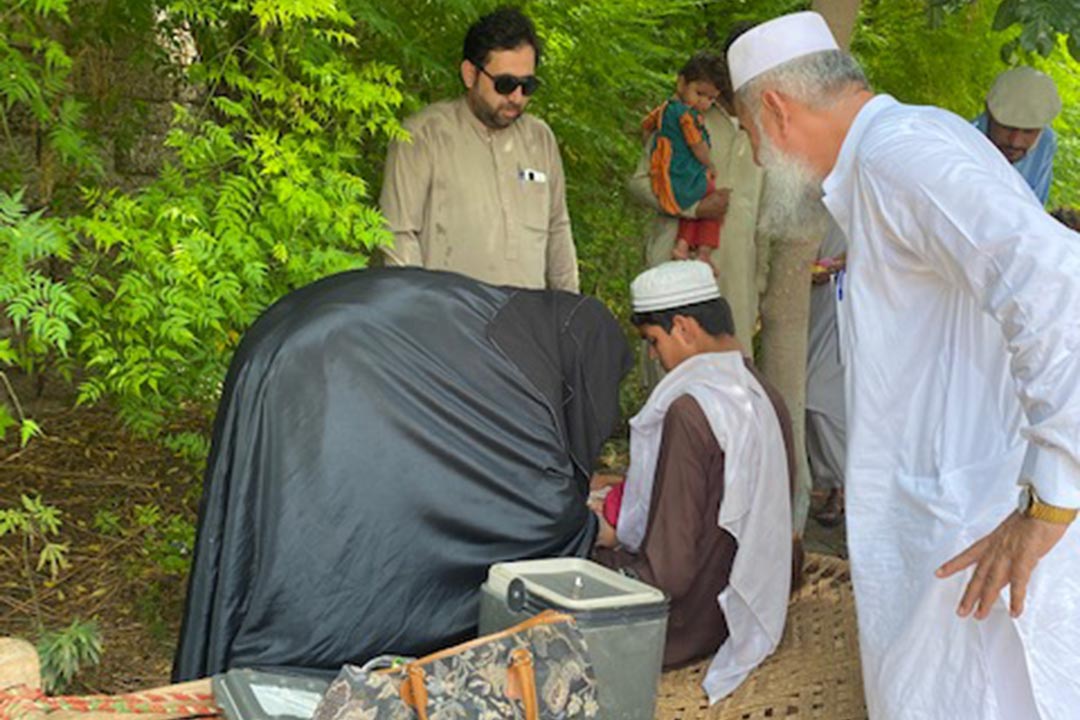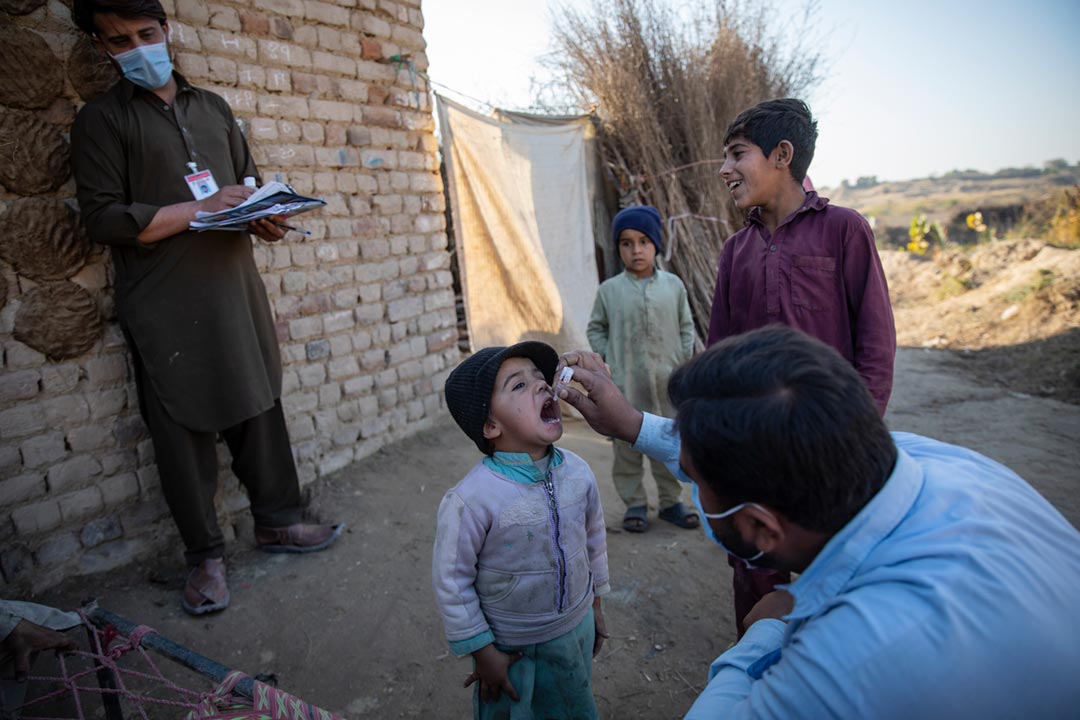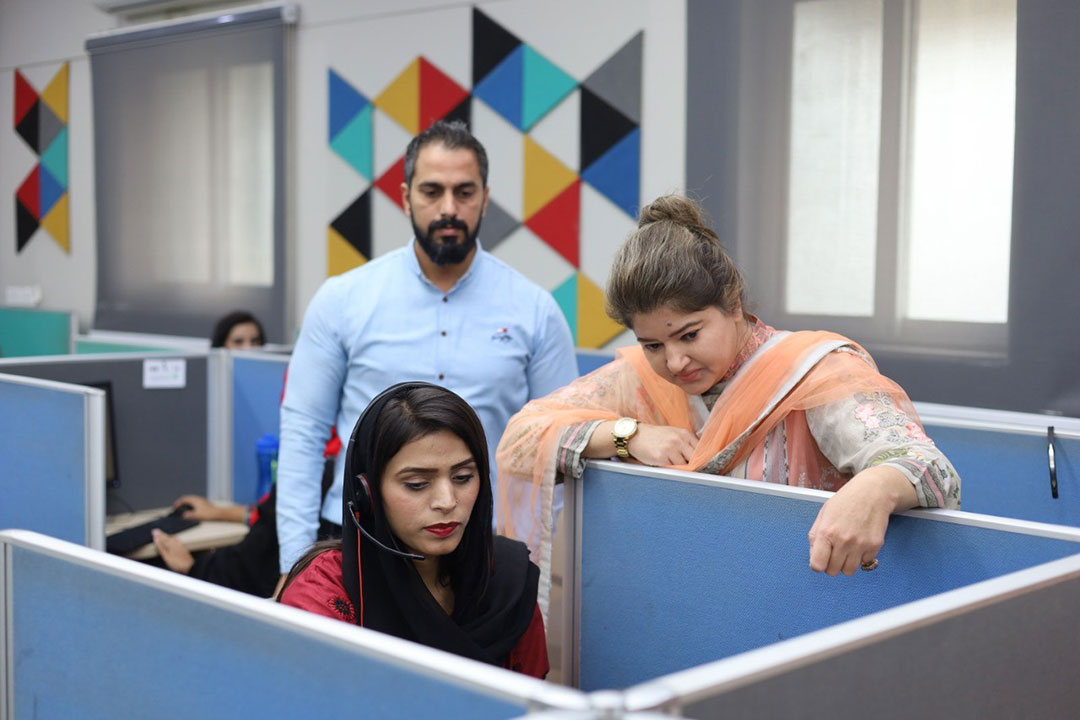No girl left behind: HPV vaccines bring hope to Pakistan
Cervical cancer is common but poorly understood in Pakistan. Civil society organisations have been hard at work teaching communities about the power of HPV vaccination in the weeks leading up to the first public roll-out of the cancer-blocking jab.
- 15 September 2025
- 5 min read
- by Huma Khawar
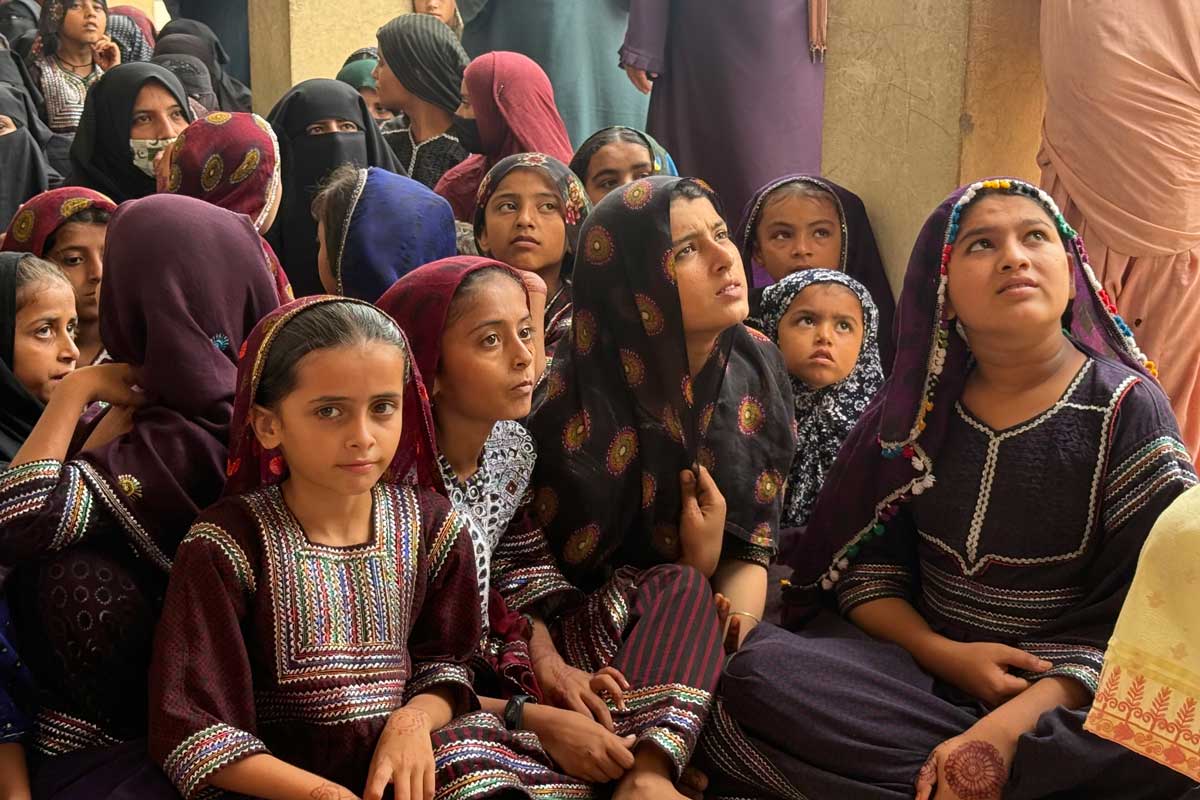
Excitement, energy, and enthusiasm fill the air. More than 80 adolescent girls clap in unison, their eyes bright and faces beaming, in response to a simple yet powerful question: “Who wants to be the first to take the vaccine that prevents cervical cancer?”
A few sheepish chuckles ripple through the crowd when another question follows: “Is anyone afraid of the needle?”
The questions keep coming – from both health workers and the assembled crowd. “Will you bring your sisters and friends to the vaccination session?” “Will my younger sister get the jab too?”
We are in Rehri Goth, a coastal fishing community on the southeastern coast of Karachi. More than a hundred women and girls have gathered for an HPV vaccination awareness session hosted by the Health Education Literacy Program (HELP), a civil society organisation working to increase vaccine uptake in under-served areas.
Though cervical cancer is the second-most common cancer among Pakistani women, a recent Jhpiego survey revealed that only 17.2% of Pakistani caregivers had ever heard of it. Just 4.4% knew of the human papillomavirus (HPV), which causes the overwhelming majority of cases of cervical cancer, and only 3% knew that there’s a vaccine that can prevent the virus, and as such, the cancer.
That vaccine is becoming publicly available in Pakistan for the first time today – with organisations like HELP providing not just vital logistical support to the campaign, but delivering information, reassurance and hope. More than a medical intervention, awareness sessions like this one are opportunities for equity: justice in action.
At the front of the room stands Tahseen Zehra, a young field coordinator with HELP. Calm and composed, she responds to every question with care – reassuring hesitant mothers, dispelling fears, and sharing facts about the vaccine in crisp Urdu. Her presence and words transforms uncertainty into understanding, and hesitation into hope.
This is the quiet power of community health workers: they build trust, spread knowledge, and empower entire communities – one conversation at a time.
A preventable tragedy
Worldwide, a woman dies of cervical cancer every two minutes – and almost every one of those deaths could have been prevented with a single dose of vaccine.
In Pakistan 5,000 women are diagnosed with cervical cancer each year, and nearly 3,000 of them lose their lives to it. These numbers represent only the reported cases; the actual toll is likely far higher, especially among women of childbearing age.
Hopefully, this tragic trend is about to turn. Pakistan is launching the HPV vaccine nationwide – becoming the 150th country to do so. Backed by Gavi, the Vaccine Alliance, and following recommendations from the National Immunisation Technical Advisory Group (NITAG), the campaign will target a staggering 18 million girls aged 9 to 14, starting with a 12-day school-based drive beginning today, 15 September. The campaign will cover Sindh, Punjab, Azad Jammu and Kashmir, and Islamabad, and eventually integrate HPV into the routine immunisation schedule.
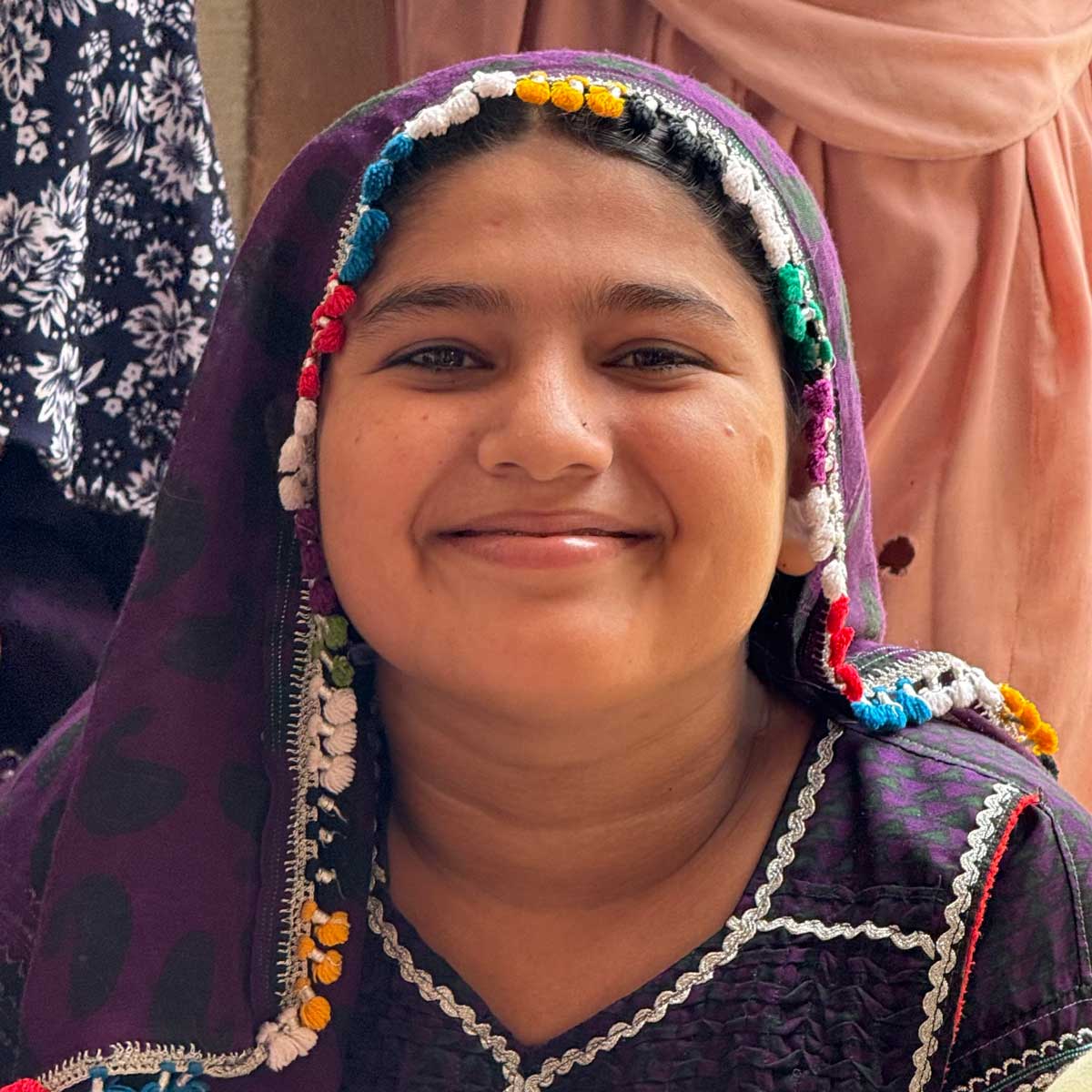
Reaching girls already left behind
Around the world, HPV vaccination sessions have been concentrated in schools. But in Pakistan, nearly 45% of girls in the eligible age group are not enrolled. Making sure that out-of-school girls are not left behind is a challenge the health system is determined to meet.
One of those girls is Safia, seated in the front row at the Rehri Goth meeting. Her father is a fisherman, her mother earns a modest living by crafting decorative braids for women’s dresses. The same delicate braids are sewn into Safia’s own outfit today – a quiet but powerful symbol of dignity, pride and resilience.
Safia may not have a place in the formal education system, but in this room, her presence is strongly felt. The 13-year-old’s hand shoots up with every question – confident, eager, unwavering – like a head girl determined to be the first to answer. She’ll be among the first to step into the safer future dawning for young Pakistani girls today.
As the session progresses, more hands go up – this time from the mothers.
“Is the vaccine safe?”
“Can it be given during periods?”
“Can I give it to my married daughter?”
These are deeply personal, valid concerns. Many caregivers know little or nothing about HPV or cervical cancer. But by engaging with their questions – by listening without judgment and responding with empathy – health workers help dismantle incipient fears, and unfang the misinformation that seems to circulate each time an unfamiliar vaccine is brought to the public.
Have you read?
The woman bringing protection to Rehri Goth
Tahseen Zehra doesn’t just lead awareness sessions. She walks the narrow lanes of Rehri Goth every day, knocking on doors, speaking to mothers and answering every anxiety with facts.
“I take resistance as a challenge,” she says. “I’m a field person. I can’t stay away from the community or its people.”
She’s been assigned 3,600 households across five paras (villages) – and she’s counting on finding at least one girl in the target age group in each home. Her goal: 3,600 girls vaccinated. Her greatest fear? Missing even one.
“Because once the 12-day campaign ends,” she explains, “that opportunity may not come again.”
And time is of the essence.
A future within reach
For Tahseen, this is not just another vaccination campaign. For her this is a historic opportunity not just to protect girls, but to show each one of them – in school or not – that their future matters. Healthcare, Tasneem says, should not depend on where a girl lives, or whether she goes to school.
Tasneem may be unique, but she’s thankfully not alone. Thanks to the commitment of the many frontline workers like her, in the coming weeks, millions of girls will not only be shielded from illness, but empowered.
